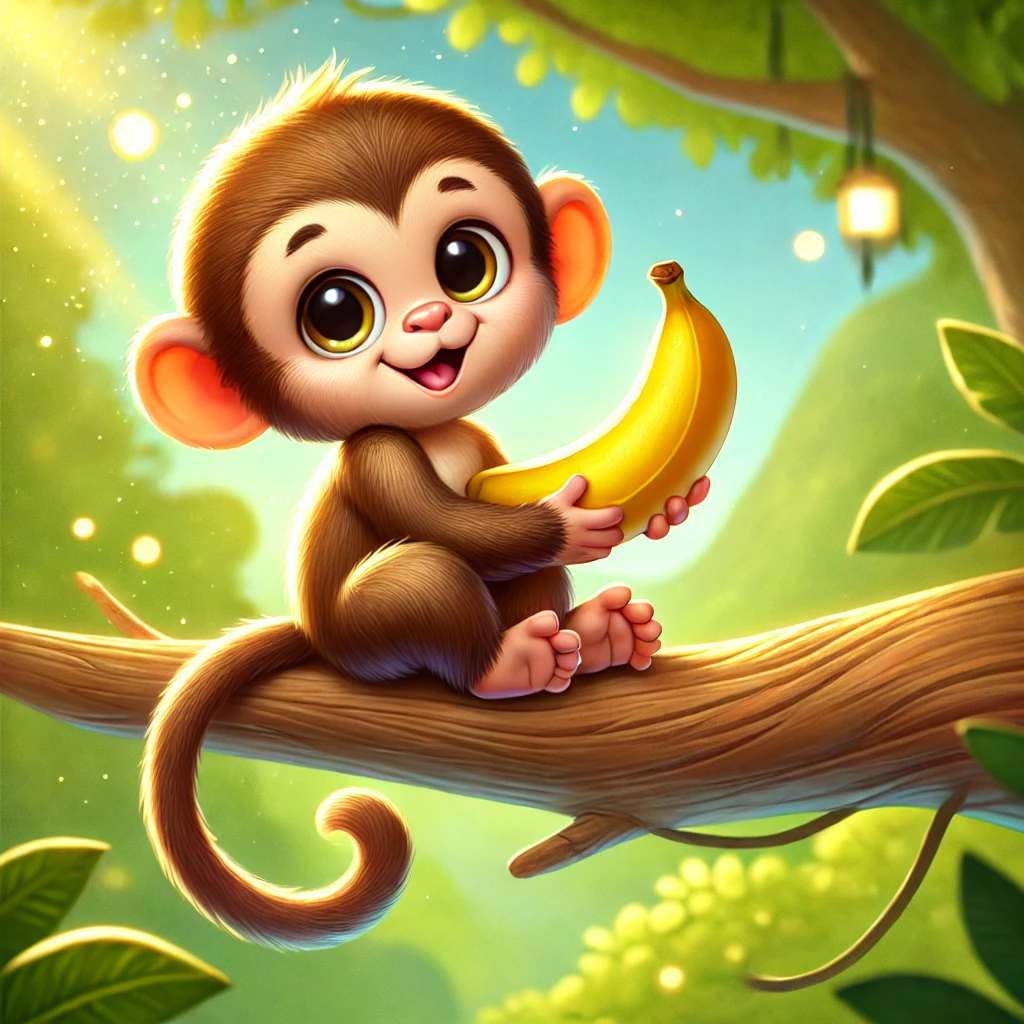Monkeys are often depicted munching on bananas, making it a symbol synonymous with their existence. However, there’s much more to this fascinating connection than meets the eye. In this article, we delve into the intricate relationship between banana:b4hnuk08dew= monkey , exploring why this fruit has become their favorite, its nutritional impact, and how it influences their behavior in the wild. Let’s uncover the truth behind this timeless association and see why monkeys love bananas.
Why Do Monkeys Love Bananas?
The question that often comes to mind is, why do monkeys love bananas so much? It’s a combination of taste, texture, and nutrition that makes bananas an irresistible treat for these intelligent primates.
1. Sweetness and Energy Boost
Monkeys are naturally attracted to sweet flavors, and bananas, with their rich sweetness, provide a quick energy boost. The high sugar content in bananas delivers instant fuel, which is crucial for monkeys that are constantly moving, climbing, and foraging.
2. Soft Texture and Easy to Eat
Monkeys don’t have the time to deal with hard or tough-to-eat foods, especially when they’re on the move. Bananas are soft and easy to peel, making them an ideal snack. This convenient packaging ensures that they can quickly access the fruit and enjoy its nutrients without much hassle.
3. Nutritional Value for Monkeys
Bananas are packed with essential vitamins and minerals, such as Vitamin B6, Vitamin C, potassium, and magnesium. These nutrients help maintain the health and energy levels of monkeys, contributing to their overall well-being and longevity in the wild.
The Evolutionary Bond Between Monkeys and Bananas
The connection between monkeys and bananas is more than just a preference; it’s an evolutionary relationship. Monkeys, being natural foragers, seek out fruits that provide them with the highest nutritional value. Over time, they’ve learned that bananas are a reliable source of energy and nutrients, establishing a bond that has spanned generations.
Adaptation and Survival
Monkeys have developed a keen sense of identifying ripe bananas, even from a distance. This ability ensures that they consume the fruit when it’s at its peak nutritional value. Moreover, bananas are available in tropical regions where many monkey species thrive, making them an integral part of their diet.
Nutritional Benefits of Bananas for Monkeys
Let’s take a closer look at the nutritional benefits of bananas and how they play a vital role in the diet of monkeys:
- Rich in Carbohydrates: Bananas are an excellent source of carbohydrates, which provide the energy needed for monkeys to stay active and alert.
- High in Potassium: The high potassium content in bananas helps maintain healthy muscle function and nerve signaling in monkeys, essential for their climbing and jumping activities.
- Vitamin C Boost: Vitamin C is vital for maintaining a healthy immune system in monkeys, protecting them from illnesses and ensuring they remain fit.
- Fiber Content: Bananas contain dietary fiber, aiding in digestion and ensuring a healthy gut, which is crucial for monkeys in the wild.
Behavioral Impact of Bananas on Monkeys
Bananas are not just a food source for monkeys; they influence their behavior and interactions in fascinating ways: banana:b4hnuk08dew= monkey
1. Social Interaction and Bonding
Monkeys often share bananas with each other, and this act of sharing strengthens social bonds within the group. It’s not uncommon to see a mother monkey teaching her young how to peel and eat a banana, showcasing the importance of family ties.
2. Problem Solving and Intelligence
Monkeys are incredibly intelligent, and their ability to peel bananas is a testament to their problem-solving skills. This task may seem simple, but it requires coordination, learning, and intelligence, highlighting the cognitive abilities of these primates.
How Monkeys Source Bananas in the Wild
Contrary to popular belief, bananas don’t grow everywhere in the wild. Monkeys have to be resourceful and adapt to their environment to find this fruit. Let’s explore how they manage to source bananas in the wild:
1. Foraging Techniques
Monkeys are expert foragers. They use their keen sense of smell and sight to locate bananas, even in dense foliage. Once found, they use their agility and climbing skills to access bananas growing high in trees.
2. Team Effort and Sharing
In some cases, monkeys work together to harvest bananas, especially when the fruit is located in hard-to-reach places. This teamwork ensures that everyone in the group gets a share, reinforcing the social structure within the troop.
Do All Monkeys Eat Bananas?
It’s a common misconception that all monkeys eat bananas. While many species do enjoy them, others prefer different types of fruit, leaves, or insects. Some monkey species, such as macaques and capuchins, have a diverse diet and only eat bananas when they are available. In contrast, others might never encounter a banana in the wild.
Why Some Monkeys Avoid Bananas
The diet of a monkey depends on its environment, availability of food, and the specific nutritional requirements of the species. For instance, monkeys living in regions where bananas aren’t native have adapted to consume other fruits or plant materials, demonstrating their flexibility and adaptability.
The Role of Bananas in Captivity and Zoos
In captivity, bananas are often used as a treat or reward for monkeys. This practice helps keep them engaged and stimulated, mimicking the foraging behavior they would exhibit in the wild.
1. Enrichment and Training
Zoos often use bananas as part of their enrichment programs, encouraging monkeys to use their natural skills to access the fruit. This process provides mental stimulation and helps prevent boredom.
2. Balancing Their Diet
While bananas are nutritious, it’s essential to balance a monkey’s diet in captivity. Overconsumption can lead to health issues, such as obesity or nutritional deficiencies. Zookeepers ensure that bananas are just one part of a well-rounded diet that includes other fruits, vegetables, and protein sources.
Conclusion: The Timeless Connection Between Monkeys and Bananas
The relationship between monkeys and bananas is a testament to the adaptability, intelligence, and social structure of these fascinating primates. Whether in the wild or captivity, bananas provide them with essential nutrients, energy, and opportunities for bonding and learning.
Understanding this bond allows us to appreciate the complex behaviors and dietary needs of monkeys, showcasing how nature’s design has perfectly matched these creatures with their favorite fruit. Next time you see a monkey with a banana, remember that it’s not just a simple snack—it’s a vital part of their existence.




